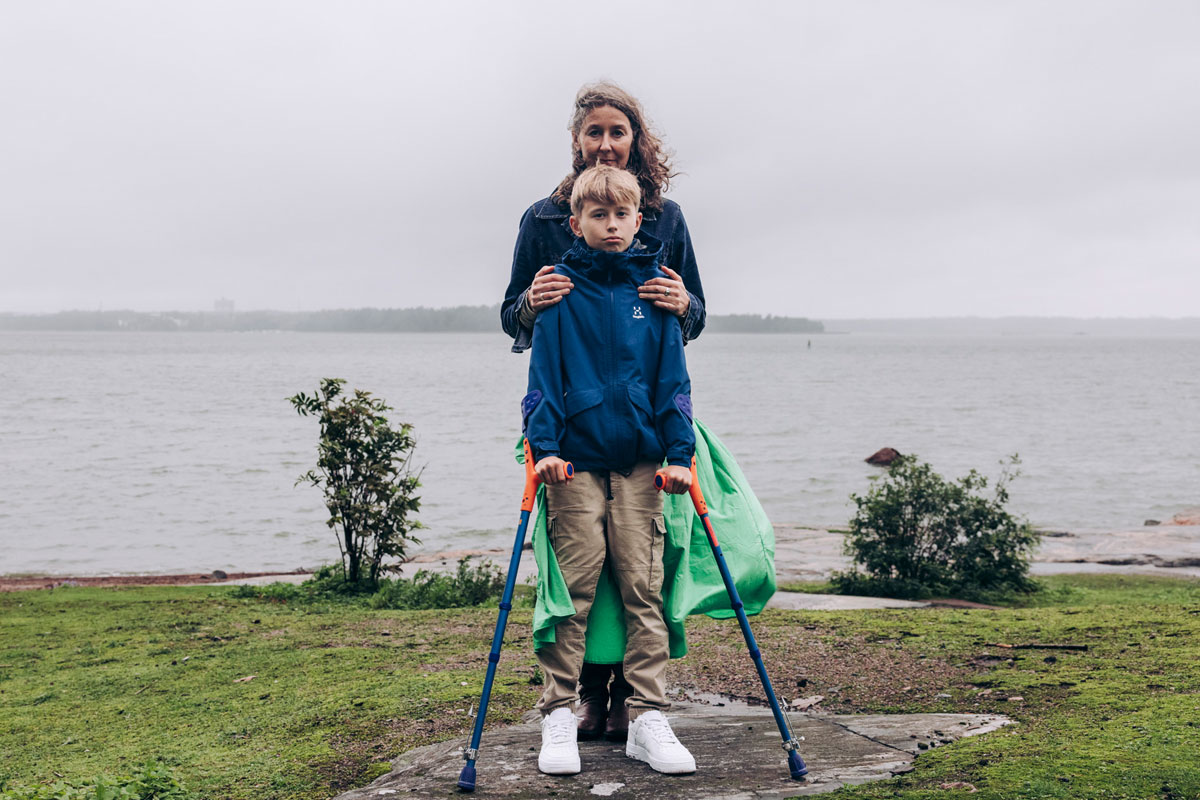
Cancer genetics
According to current estimates, only about one in 10 cases of cancer is associated with hereditary predisposition. Cancer is not inherited.
Is my cancer hereditary?
Cancer is a common disease, and almost every family has a number of members who suffer from cancer. However, this does not generally mean that families have a hereditary predisposition to cancer. The vast majority of cancer cases originate from the combined effect of hereditary as well as external influences, such as environmental and lifestyle factors.
Cancer is not inherited
Cancer is only the genetic defect that can lead to cancer that is inherited, which means that the predisposition to getting cancer, or increased risk, can be inherited. However, this is not common. According to current estimates, only about one in 10 cases of cancer is associated with hereditary predisposition.
An inherited genetic defect is not necessarily passed on to all members of the same family, and not everyone who receives the same defective gene will develop cancer.
It is also worth remembering that the genetic changes that occur in cancerous tumours are not passed on genetically to one’s offspring.
How is hereditary cancer identified?
A genetic disposition to cancer can be identified by the onset of cancer occurring at a very young age or that many closely related members of the same family suffer from the same type of cancer.
The genetic defects that incur a predisposition to cancer are varied. They can be rare, they may involve genetic changes that pose a high cancer risk, or ones that carry only a low risk, or then somewhere in between.
Nowadays, we know about some of the genetic defects that carry a bigger cancer risk, but not all. Many genes are still being investigated.
Hereditary breast cancer
Breast cancer is the most common form of cancer among women. Nearly 5 000 women and some 20 men fall ill with the disease. From what we know at present, about 10 per cent of breast cancer is hereditary. The best-known genes that carry a high risk of causing breast and ovarian cancer are the BRCA1 and BRCA2 genes. There is also a susceptibility gene, which is linked to a moderate risk of breast cancer.
It is good to find out about one’s inherited breast cancer predisposition if
- At least three of four relatives from the same side of the family have had breast or ovarian cancer
- A close relative had cancer at a young age
- There has been both breast and ovarian cancer in the same family
- A man in one’s family has had breast cancer.
Hereditary colorectal cancer
About two-three per cent of the new cases of colorectal cancer detected each year are hereditary.
We refer to hereditary colorectal cancer if
- At least three close family relatives have had colorectal cancer and at least one of them is under 50 years old.
- There has been, in addition to colorectal cancer, endometrial, small bowel, urethral or renal pelvis cancer among close family relatives.
There are about 380 extended families in Finland in which gene defect causing a predisposition to hereditary non-polyposis colorectal cancer (Lynch Syndrome) has been detected.
Can we detect cancer with gene tests?
Cancer cannot be found using gene testing, but with the help of current genetics research we can detect some cancer-predisposing gene defects.
At present, there is no simple genetic test for those interested in being tested. Genetic tests are only used when there is clear evidence of a possible hereditary predisposition to cancer.
If the hereditary risk of cancer is a concern, you can find out more from the Cancer Society of Finland’s genetic counselling.
You can find out about the genetic risk of cancer from the Cancer Society’s counselling service. The aim of the counselling service is to alleviate concerns about becoming ill and to provide solid information about cancer and cancer and genetics.
